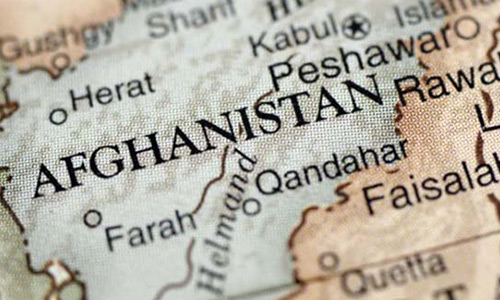Historically, the e basic study of sociology backs to the classic age but it has considerably developed in modern era. With the collapse of autocratic regimes and emerging modern social institution, it was born and the social scholars such as Marx, Montesquieu and Kant were of the founders and pioneers of this principle. They played important role in modernization of today’s world while some of world countries still stuck in tribal and despotic environment. In Afghanistan, we could not use these scientific theories and valuable achievement of these scholars. As a result, we have not been successful in solving many of the social and political issues while the solutions have been provided several centuries ago.
What is political sociology? And what is the political sociology of Afghanistan? The Political sociology discusses about the relationship between social institution and political power. It explains which social institutions and which social components influence over the political power and government. For example, what is the general role of political culture, religion, military, intellectuals, elites, political parties, language, tribe and race on the political power? In the other word, both the subject of politics and political sociology is political power but methodologically they are different. It means, politics discuss about political power from top to bottom but political sociology discusses from bottom to top.
Given the fact that Afghanistan is a multicultural and multi-ethnical society, and given the abovementioned political sociologic theories, there are several factors which influence and affect the political power and often act as buriers against state building process. The first factor which influences the political condition is tribal competition. Ethnic competition can play helpful or harmful role in political development depending on general political management. It plays negative role when people try to gain social or economical privileges reclining on tribal, language and religious gaps. According to Suzan, the social conflicts happen when the social groups compete over the limited resources. In other word, the social gaps can play negative role when there are no culture of meritocracy in distribution of wealth, power, prestige and opportunities.
The second factor which activates the social gap or intensifies ethnical tension in a society is ethnical deprivation. According to political sociologists, when the deprived ethnic groups feel that they are able to bring changes, they will proceed against the superior ethnic group to revive their rights while the superior ethic group will try to conserve the current situation. These kinds of conflicts are called vertical conflicts which have always existed in Afghanistan, but could not find proper opportunity to emerge due to the absolute control. In1992 after the collapse of central government and with freeing from political control, it was tremendously appeard in form of demanding ethnic rights which led to domestic war in the country. So, based on this theory, any types of deprivation from civil rights can lead to unpleasing social and political consequences among the ethnic social groups.
The third factor which activates the social gap and ethnical tensions in a society is elites’ competition. The elites are those categories of people who have social, economic and political influence on society while hold governmental and non-governmental positions. The elites can play both constructive and destructive role through demonstration, provoking ethnic and religious emotion. In fact, they are very expert in using social gaps in order to reach political interests. With looking at the history of Afghanistan, there are a lot of examples when they used social gaps to reach personal or political goals, especially in last one hundred year. Unfortunately, both government and non-government politicians have had role in creating this divisions and yet persists in the country.
The political elites persistently provoke ethnic sensitivities because they have no national program to unite the people on the basis of a constructive national plan and so prefer to use the timeworn destructive tool. Unfortunately, in last two decades we have not seen any ethnic political leaders to come with a big political program. Not only, they play a negative role but also show a wrong role model for Afghan people to imitate. As result, most of private institutions such as media, university, political candidates and even residential settlement have become tribal while we are in twenty first century. The forth factor which activates the social gap in a society is cultural unification. In multi-cultural society such as Afghanistan, it is obvious that people are loyal to their traditional and cultural values. So, when one tribe wants to impose its values, it activates some social gap in the country. Fortunately, this issue is not true in modern Afghanistan as all major branches of ruling religion and language are legally recognized by national constitution. However, the people of Afghanistan have no good memory from dogmatic approach of Taliban in recent years. The last factor which activates the social gap in a society is role of international system on ethnic conflicts in certain circumstances. According to some international relation analysts, the tribal and religious phenomena can be studied at the international level. It means that some regional or international elements may use the social gaps for reaching their political interests. In last two decades in Afghanistan, several terrorist attacks were launched on certain ethnic or religious group aiming to activate the social gaps and divide the Afghan ethnic groups, but fortunately Afghan people have patiently neutralized those sinister goals. Finally, it is expected from all Afghan people be cautious and all Afghan elites stay committed to the moral and national values.
Home » Opinion » The Sociological Factors of Ethnic Tension in Afghanistan
The Sociological Factors of Ethnic Tension in Afghanistan
| Mohammad Zahir Akbari

